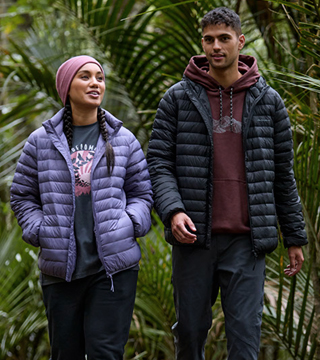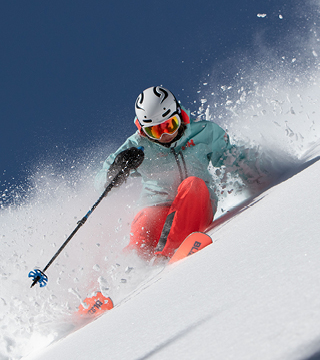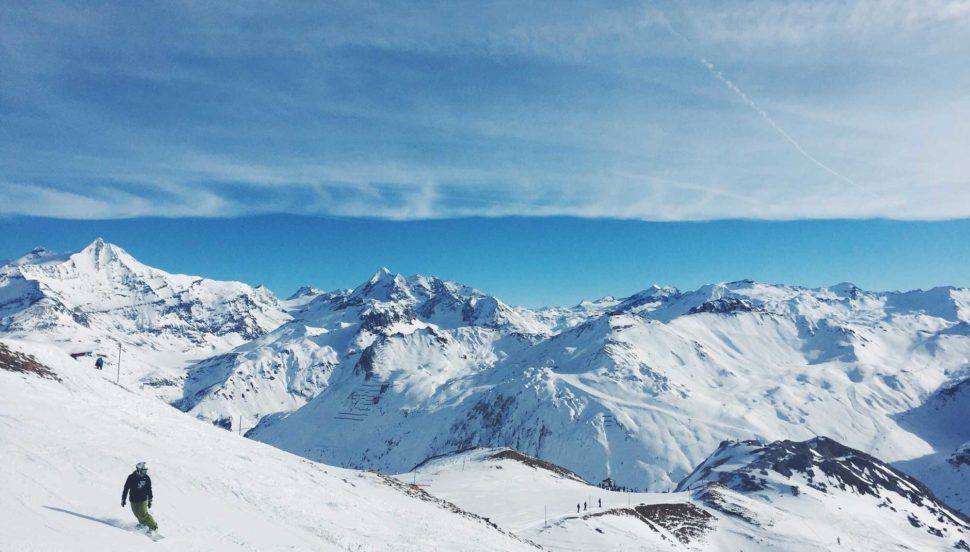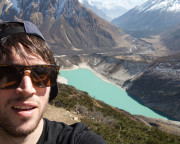Winter is well and truly here, but it doesn’t mean that you should stop getting outdoors. Winter temperatures around New Zealand rarely reach double figure. So you’ll need to make sure you have the appropriate clothing for your trip. Dressing for winter is all about layering, breath-ability and heat retention. Breathable moisture wicking fabrics such as merino, Polartec or Thermatec will remove sweat and keep you dry which keeps in the warmth. Follow this up with an insulation layer such as down or synthetic like Primaloft to get maximum heat retention and finally an outer shell to keep the rain and wind off.
Planning travelling through snow or alpine terrain outside of a skifield? Then you’ll need to make sure you are aware of the weather and the avalanche danger. Weather in alpine terrain is very changeable so you need to be aware of the day’s weather forecast while also being prepared for all possible weather conditions. Avalanche danger is also a possibility when you are in or even near snow. Make sure you have checked the relevant avalanche forecast on avalanche.net.nz this will help you to make informed decisions on where and how to travel in the alpine. The New Zealand Avalanche advisory (NZAA) is a public avalanche forecast provided by the MSC for recreationists in NZ alpine terrain. It provides information about the snowpack, avalanche concerns and occurrences as well as danger ratings for the various regions and elevation bands. This will help you make more informed decisions about your coming adventures. For more information on where to get avalanche training and advice visit mountainsafety.org.nz.
Is going into the backcountry worth it? With the right training, skills and gear getting out into the backcountry during winter can be an unforgettable experience. But, you’ll need to be aware that the consequences of judgement errors can be severe. So, whether you are hiking, mountain biking, skiing, mountaineering or hunting make sure you check out the links below and learn how to correctly plan your trip.
What gear do I need for backcountry trips? Travelling in the alpine terrain – and more specifically snow – requires additional equipment. At a minimum, everyone in your party should be carrying a beacon, shovel and probe. This is the essential rescue gear to rescue someone who has been caught in an avalanche, however, it’s important to note that this is rescue gear, not safety gear. Knowing how to use the equipment is essential along with making the correct travel decisions based on the avalanche forecast.
Planning to stay out overnight in winter? If you are planning on staying out overnight make sure you have a dry set of clothes as sleeping in wet clothes will drastically cool you down. Also having an appropriate sleeping bag with a good thermal rating will help you stay warm. Two very helpful tips on staying warm at night, firstly make sure you change your base layer to a fresh one as soon as you stop for the night, this will ensure you are absolutely dry. Secondly, make sure you have a drink bottle such as a Nalgene that can hold hot water. Add hot water and bring it in your sleeping bag with you. It will act as an improvised hot water bottle and make the inside of your sleeping bag nice and warm – Be careful not to burn yourself as it can get very hot.
Find out more via the links below,
MSC website



















